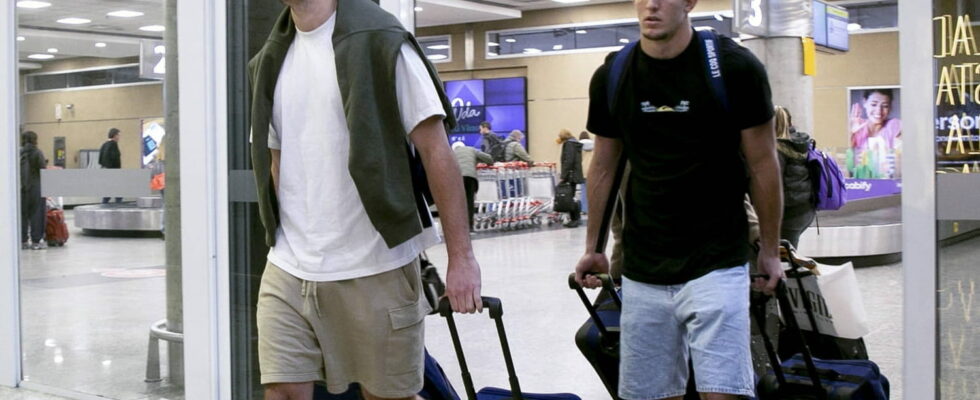The two rugby players are awaiting the verdict from the Argentine courts and it took longer than expected.
The affair of the two players of the XV of France, Oscar Jegou and Hugo Auradou which began in Argentina, is in its final phase. But contrary to what was initially said, the final court decision takes time (three postponements) and we are now awaiting a decision this November 25 at 9 a.m. (local time, 1/2 p.m. in France) by the Public Prosecutor’s Office of Mendoza (Argentina). The last postponement was linked to the request of the plaintiff’s lawyer, who had presented new documents, ultimately refused, for the file.
But in a new twist, this Tuesday, November 19, the plaintiff’s lawyers requested the recusal of judge Eleonora Arenas as indicated by Le Parisien. Their desire is therefore to change judges, for one “latent risk of impartiality” according to them. This request will be processed this Friday at 3 p.m. in Argentina, or 7 p.m. in France. If the decision is ever known to everyone on the same day, then the hearing for a possible dismissal of the case on Monday will be maintained.
As a reminder, the two internationals had been charged with aggravated rape (because committed in a meeting) for alleged acts that occurred on the night of July 6 to 7 in a hotel room in Mendoza, where the XV of France had just played a test -match against Argentina. After a first long battle, the players were authorized by the Argentine courts to leave the country on September 3 and return to France, despite their indictment. The reason? “the existence of notable contradictions, inconsistencies, gray areas and even insufficient explanations” as explained by the prosecution.
A chilling testimony
The alleged victim gave a chilling testimony to Envoyé Spécial a few days later. “They brutalized me and considered me a piece of meat,” she explains. “He grabbed my neck. He put me on the bed. He stripped me like a brute. He pulled me off the bed while I was naked and he lifted me by the neck , so much so that I had no oxygen left. I tried to respond by slapping him. Instead of stopping him, this slap made him continue.
Audio messages that call into question the victim’s version?
Crucial documents brought into the case leaked to the press. These are audio messages from the complainant to a friend in the hours following the alleged rape. The Argentinian newspaper The Nation revealed the content of one of these messages: “You don’t know how cute this Frenchman was, the tallest one, the kid was terrible”. The Argentinian site Clarin even reveals much more explicit messages from the complainant: “I met a French rugby player. Super tall guy. Too handsome, too handsome. I went home at 9 a.m. At 9 a.m.! I I owe you everything, you encouraged me not to stay here at home, always the same story. When I go out, I take advantage of it, he blew me up. . I have marks on the back, the jaw.”
Rafael Cúneo Libarona, another lawyer for the two players, affirmed on August 6 that “the innocence of the two players has been demonstrated”, estimating that there would be “notorious contradictions” in the testimony of the 39-year-old woman . For her part, Natacha Romano, the plaintiff’s lawyer, has criticized from the start a “manipulation” and a “premeditated act” after the broadcast of the voice messages in the Argentine press. “There are 23 voicemails in total and only four or five have been leaked, out of order and completely taken out of context,” she said in an interview with Parisian. She also claimed that the players were “never able to answer whether they had asked the victim if she agreed or not.”
A bleeding disorder that relaunches the investigation?
The two players had affirmed since the start of the case that the sexual relations with the complainant, met in a nightclub, were consensual. They had denied any violence, when the plaintiff’s lawyer had mentioned “terrible violence”. In recent weeks, new medical expertise had been presented to justify that the plaintiff did not suffer from a bleeding disorder. This illness (called Willebrand disease) was invoked by the players’ defense to explain the bruises found on his body. The young woman herself admitted, initially at the start of the case, to suffering from this illness. A contradictory version which once again fuels certain inconsistencies in the version. The experts initially contacted in this case noted “contradictory and inconsistent content when explaining situations with which it is confronted (…) which overall paint an unlikely story”.
